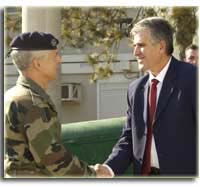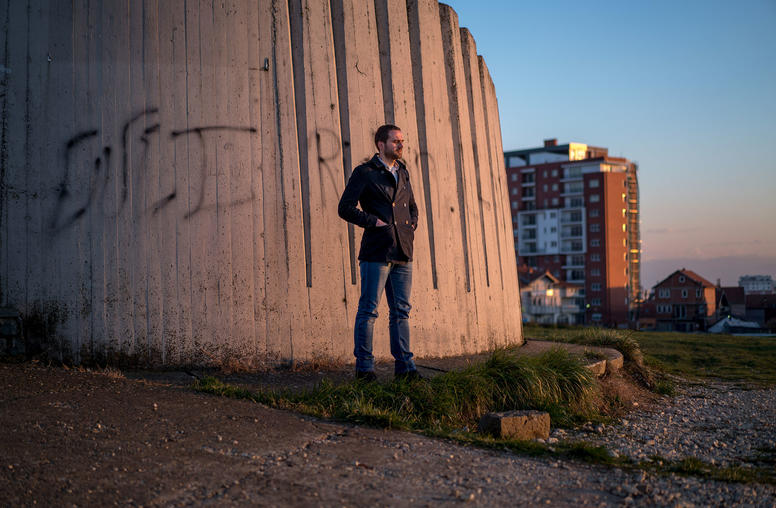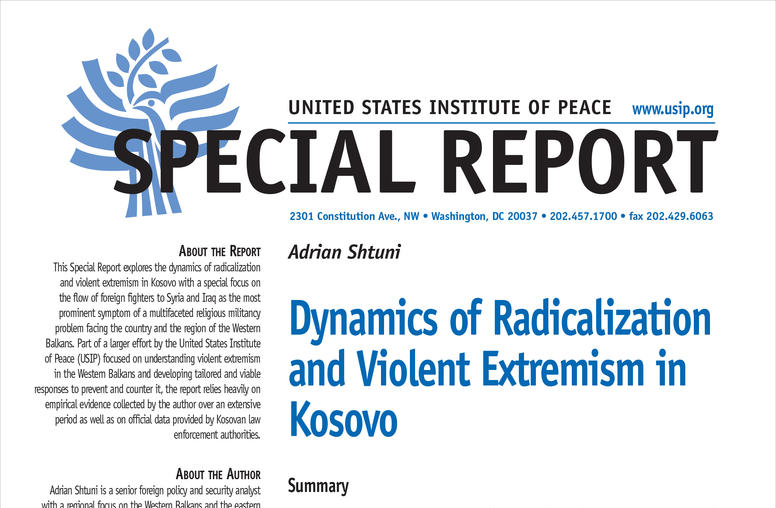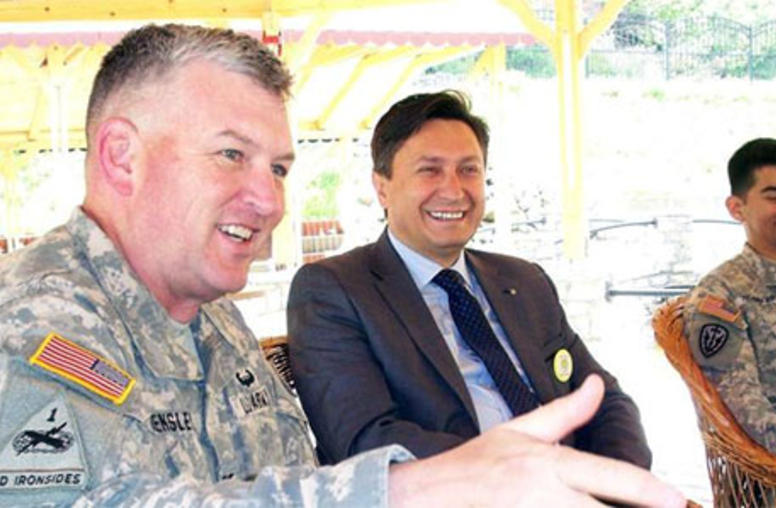Kosovo: The Road Ahead Remarks by Prime Minister of Kosovo Bajram Rexhepi
Image on right: Photo: KFOR, a NATO-led international force responsible for establishing a security presence in Kosovo, met with Prime Minister Bajram Rexhepi (right) in March 2002. (Courtesy NATO)
 What are the priorities of the new government in Kosovo? What are the obstacles it faces? How long will it take to demonstrate the capacity to govern democratically? How can UNMIK, the assembly, and the government improve the rule of law? The U.S. Institute of Peace hosted a special open and on the record session of its Balkans Working Group to explore these questions and more. Moderated by Balkans Initiative Director Dan Serwer the session featured an address and question and answer session with Kosovar Prime Minister Bajram Rexhepi.
What are the priorities of the new government in Kosovo? What are the obstacles it faces? How long will it take to demonstrate the capacity to govern democratically? How can UNMIK, the assembly, and the government improve the rule of law? The U.S. Institute of Peace hosted a special open and on the record session of its Balkans Working Group to explore these questions and more. Moderated by Balkans Initiative Director Dan Serwer the session featured an address and question and answer session with Kosovar Prime Minister Bajram Rexhepi.
Speaker
- Prime Minister Bajram Rexhepi
Kosovo Government
Moderator
Dan Serwer
Director, Balkans Initiative, U.S. Institute of Peace



